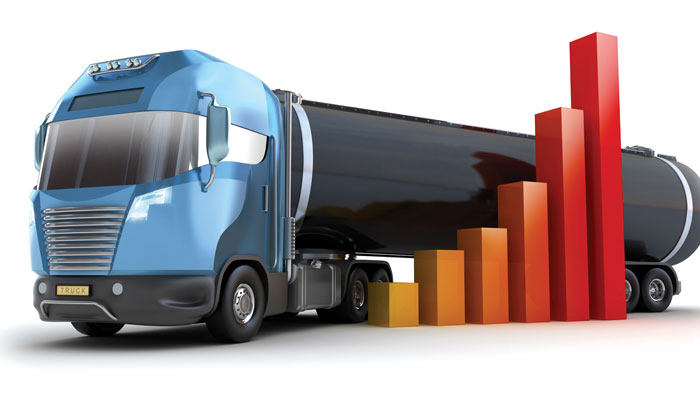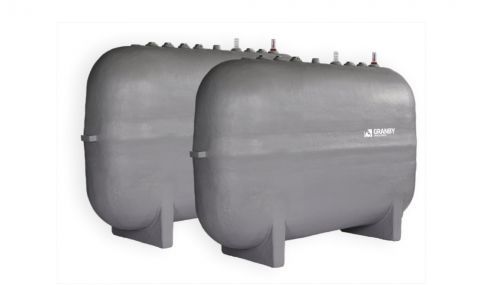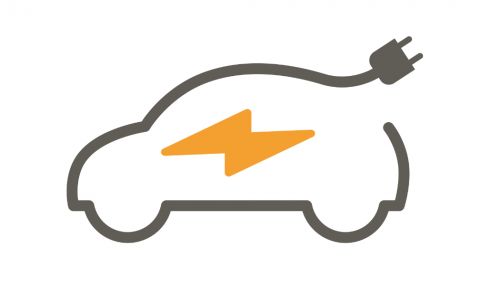All
Taking a Close Look at the IFTA
by Richard Pummell, Foley Carrier Services

The International Fuel Tax Agreement (IFTA) is an agreement among every state in the continental United States that streamlines the fuel usage reporting requirements for motor carriers. Prior to IFTA, each state had its own fuel system, issuing permits to motor carriers and making reporting methods far more complicated.
Which motor carriers are required to obtain an IFTA license?
Motor carriers are required to obtain an IFTA license if they operate:
- A Commercial Motor Vehicle (CMV) with 2 axles and a Gross Vehicle Weight Rating (GVWR) or Gross Combination Weight Rating (GCWR) of 26,001 pounds or more;
- A CMV with 3 or more axles regardless of weight.
How does IFTA work?
Each motor carrier is assigned an IFTA license number. When purchasing fuel, carriers must keep their receipts — either the hard copy or an electronic version from a fuel card is acceptable. Four times per year (each quarter) carriers are required to submit their fuel taxes to the state where their business is based. Just like IRS taxes, if the carrier has overpaid they will receive a refund, and if they underpaid they will owe the difference.
What documentation is required for IFTA filing?
- Trip reports containing the mileage traveled in each state;
- Fuel purchases (receipts, fuel card log) made in each state;
- IFTA license number and permit numbers (such as NYHUT and KYU).
Can log books be used in lieu of trip reports?
Although log books and trip reports sometimes look similar, logs are used only to document hours-of-service and cannot be used in place of trip reports.
When do IFTA reports need to be filed?
Reporting Quarter Due Date
January – March April 30
April – June July 31
July – September October 31
October – December January 31
What happens if fuel taxes aren’t filed?
Carriers will incur a financial penalty of $50 or 10 percent of the tax due — whichever is greater — as well as revocation of their IFTA license.
How could IFTA filing be impacted by the Electronic Logging Device (ELD) Mandate?
While the ELD mandate does not require an IFTA reporting component, many systems contain a feature that calculates fuel taxes and captures data from fuel entries. This can greatly simplify IFTA filing procedures.
What documentation is required for IFTA filing?
- Trip reports containing mileage traveled in each state;
- Fuel purchases (receipts, fuel card log) made in each state;
- IFTA license number and permit numbers (such as NYHUT and KYU).
Say goodbye to trip sheets!
In addition to eliminating paper logs, ELDs that include automated fuel tax reporting will further decrease your paperwork and provide:
- A spreadsheet for fuel entries and mileage;
- The ability to scan and save receipts and reports;
- Calculation of total distance traveled in a given state;
- Filter options to add or remove vehicles, and to determine vehicle distance based on fuel used;
- GPS trail to be accessed in the case of an IFTA audit;
- Various report printing options.
As usual, Foley is here to help. Check out our new KeepTruckin ELD at www.foleyservices.com, which includes Automated IFTA Fuel Tax Reporting. For more information, contact us at (800) 253-5506.
Related Posts
 U.S. Competing to Secure Critical Minerals
U.S. Competing to Secure Critical Minerals
Posted on June 16, 2025
 The Clean Air Act, the EPA, and State Regulations
The Clean Air Act, the EPA, and State Regulations
Posted on May 14, 2025
 Day Tanks Support Back-up Generators in Extreme Conditions
Day Tanks Support Back-up Generators in Extreme Conditions
Posted on March 10, 2025
 Major Breakthrough in Lithium-Ion Batteries
Major Breakthrough in Lithium-Ion Batteries
Posted on February 12, 2025
Enter your email to receive important news and article updates.
